PKK mothers want to be reunited with children
Written for Al Jazeera
Diyarbakir, Turkey – The Kurdistan Workers’ Party (PKK) has begun the withdrawal of its fighters from Turkish territory. In the Kurdish city of Diyarbakir, many mothers lost their children during the fighting, and most are still living in the mountain camps.
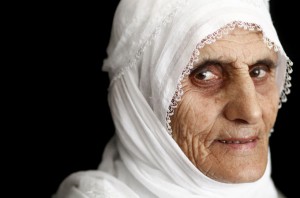
The mothers here all hope that the withdrawal will bring their children safely home.
Despite being in jail, PKK leader Abdullah Öcalan is playing a major role in negotiating the withdrawal.
For some he is a “freedom fighter”, for others a “terrorist”, but here in southeastern Turkey, the mustachioed PKK leader is considered a “hero” by many Kurds. This is the place where the Kurdish leader founded his movement 29 years ago.
“Almost everyone here has lost someone within the PKK: children, relatives or acquaintances,” said a woman named Perihan. “But still we hope for peace.”More than 40,000 people are believed to have died since the PKK began its armed struggle against the Turkish state in 1984.
With some other Kurdish women, Perihan founded Mothers of Peace, an organisation which supports women who have lost their children in the mountains. She often talks about her daughter, Fatma, the girl who sang so beautifully and made songs for Öcalan.
“After her father was thrown in prison by the Turkish government, Fatma joined the PKK,” said Perihan. “My husband was a freedom fighter; he stood up for the rights of Kurds. When he was released, he was mentally ill. My daughter – back then 17 years old – wanted to continue his struggle. I did not approve of it, but one day she just took off.”
Five years later, during a round of bombardment by the Turkish government, Fatma died, along with 15 others in her camp. In the room where the mothers usually come together hangs a large picture of her daughter.
“My other daughter Ayse considers her big sister as a hero. If she ever decides to become a PKK fighter, I will kill myself. I cannot lose any more children,” cried Perihan.
Cemetery for PKK fighters
There are hundreds of mothers in Diyarbakir who have lost their children to the PKK. Connected by their grief, the Mothers of Peace support each other, but sometimes that mutual support is just not enough.
Kibar, another “mother of peace”, weeps at the tomb of her daughter Belkiz.
Her friend Perihan puts an arm around her shoulder and whispers words of comfort.”Belkiz, why did you leave me? I miss you so much, Belkiz. Don’t you see how much I suffer, Belkiz?”
Kibar’s husband worked for the pro-Kurdish BDP political party. In 2004, he was arrested by the Turkish government for “terrorist activities”. During his detention, he was reportedly tortured. He died soon after his release and Kibar believes the injuries he allegedly sustained in prison caused his death.
Belkiz, then a 26-year-old engineer for the Turkish government, resigned from her job and became an activist out of revenge.
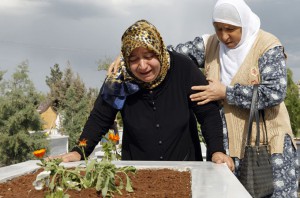
“Belkiz was in jail twice, because she demonstrated against the Turkish state,” said Kibar. “In 2010, however, they reopened her case and demanded a life sentence. She was so afraid that the state would do the same thing to her as to her father, that she decided to escape. The last time I saw her, she gave me a kiss and said she missed her daddy.”
Kibar recently heard that the cancer that plagued her kidney has returned. Her condition is terminal.
She holds up a picture of her veiled daughter. Belkiz wore a headscarf only because police were always looking for her. It’s a totally different picture than the photo Kibar saw on a Kurdish news channel a year and a half ago.
“After my chemotherapy, I was watching television in the hospital. All of a sudden, my daughter’s face was on the news. She and 37 PKK fighters were killed during a gas attack in the mountains of Iraq,” said a tearful Kibar
“And then I had to identify her. It was horrible. She was burned from her head until her toes. I did not even recognise her anymore.”
Distrust
The mothers here are proud of their children, but they all hope that those who are still in the mountains can come home as soon as possible. Now that negotiations between the Turkish government and the PKK are in full swing, and the first fighters have left the mountains, this prospect could be on the horizon. But Kurds and Turks alike remain sceptical about the future.
Under the leadership of Recep Tayyip Erdogan, Kurds have again been allowed to speak their own language in schools, universities and even on state television – but Ferida, a local journalis, thinks that there is still a long way to go.
In 2012, Turkey led the world in the jailing of journalists, ahead of Iran and China, according to the Comittee to Protect Journalists. On December 1, 2012, there were at least than 49 journalists, including dozens of Kurdish reporters, languishing in prison, accused of terrorism.
Diyarbakir is one of the cities that has suffered most from the war. Before Ferida moved to Europe to study, about 25 years ago, it was a lively area with a stable economy.”Activists, politicians and journalists must be released and house raids should stop,” said Ferida. “And, of course, we all hope that Öcalan will get out of prison too.”
When the conflict between the PKK and the Turkish government erupted, however, the situation became worse. Poverty, corruption and high crime rates now keep tourists away from this ancient walled city.
Growing tension
It is not the first time that the PKK and the Turkish government have entered into negotiations. For decades, each made promises and even occasionally laid down their weapons – but those tense moments of peace never lasted. The Turkish government, press and politicians are hopeful that these latest negotiations will end the long war, but many Kurds in Diyarbakir are afraid that they are being betrayed.
In the office of the Peace and Democracy Party (BDP), a political group who supports the Kurdish cause, hundreds of women come together recently to talk about the loss of their loved ones. Most of them wear scarves of red, yellow and green; the colours of the PKK.
“Believe me, we feel the pain of these mothers and stand behind them, but we also realise that it cannot go on this way,” a BDP spokesman said. “The Kurdish – and the Turkish – population sees these negotiations as a final chance. But there is a lot of tension on the streets of Diyarbakir. If something goes wrong, the people will continue their fight.”
A few blocks away, Turkish military vehicles are spotted and in Turkish military aircraft circled overhead. The PKK said in a statement that such activity undermines the peace process.
Gülsüm, a mother attending the talk, holds a picture of her son, Mehmet. Two years ago he went to the mountains to fight with the PKK – and she hasn’t heard from him since. She hopes to see him soon, maybe in Iraq, if everything goes well.
“What can I say? Yes, I stand behind Öcalan, but yearn for peace, like all Kurdish mothers in this building,” she said.
“Losing a child is the worst thing that can ever happen to a woman. The Turkish mothers feel the same way about that, I’m sure. We both suffered enormously. We want peace.”
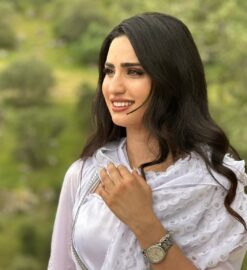
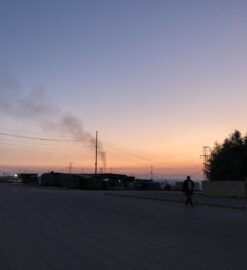
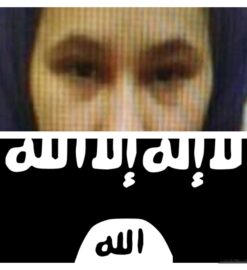
Leave a Reply